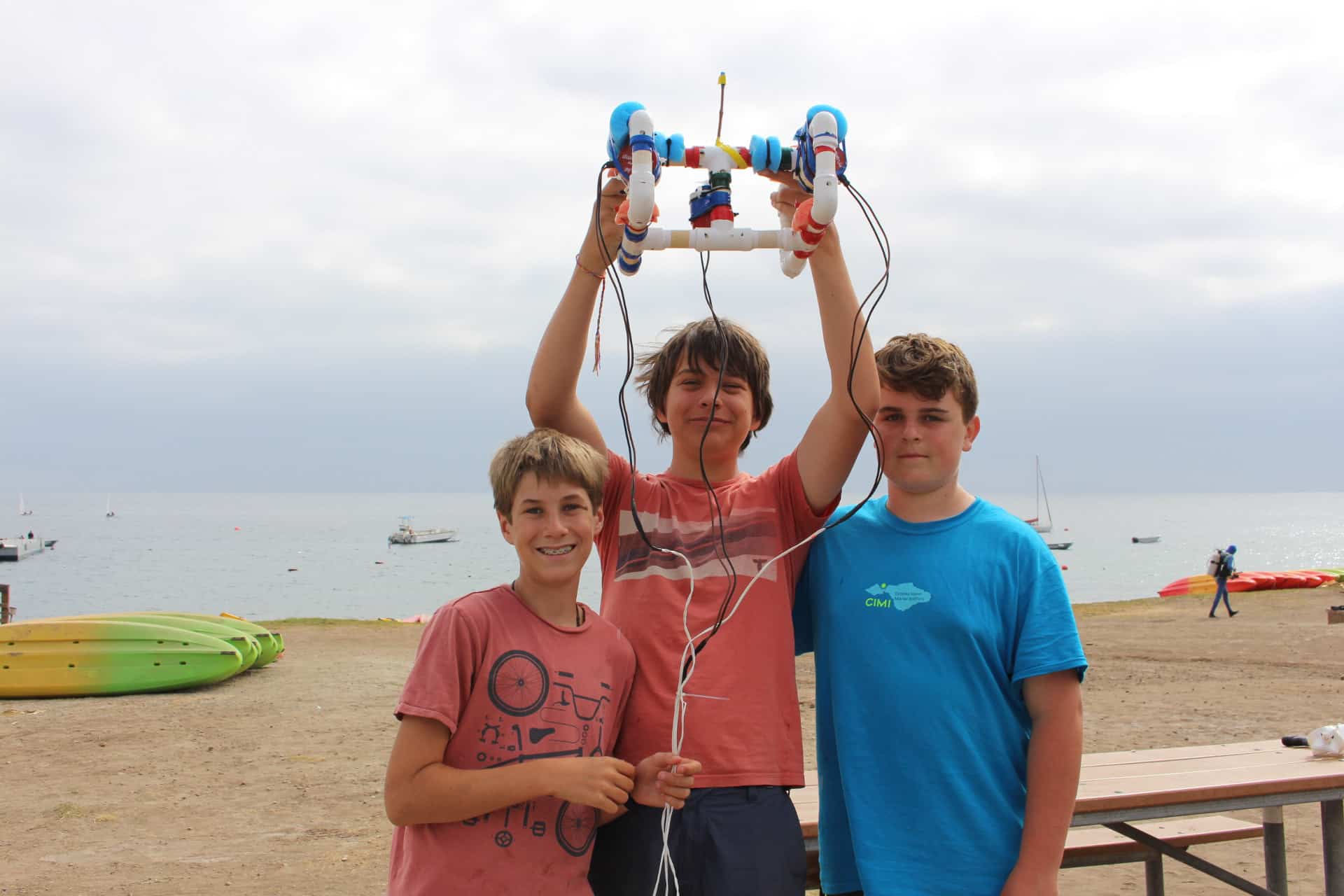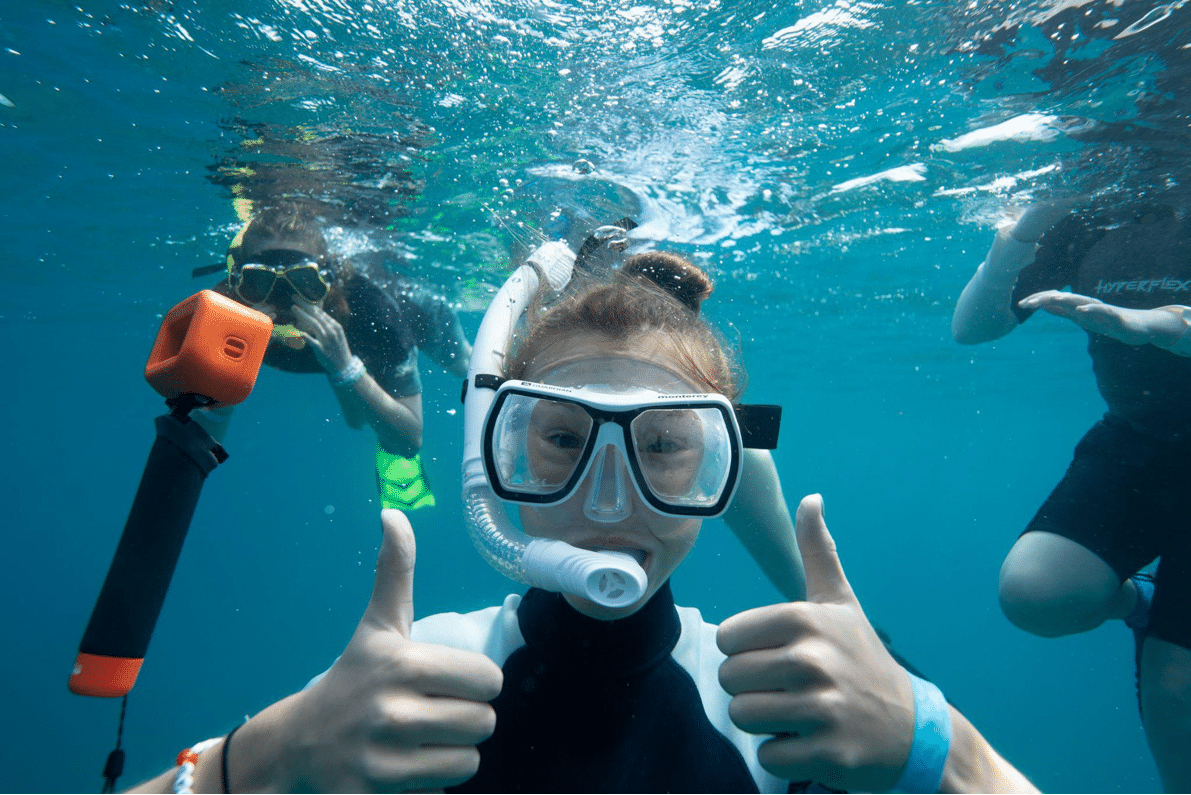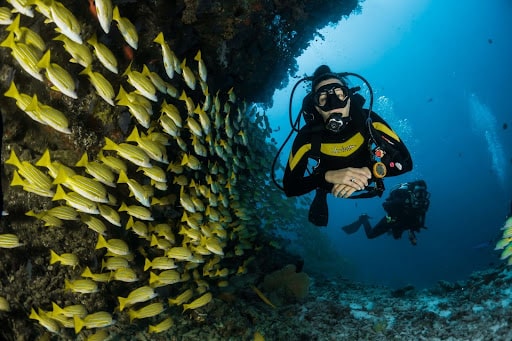
Most people know that over 70% of our planet is water, and most of that water is in the ocean. But not everyone realizes just how much of an impact the ocean has on our daily lives, as well as our future. At Catalina Sea Camp, our facilities are right on this magnificent body of water, with private beaches at Toyon Bay and Fox Landing on Catalina Island. This gives our camp the unique opportunity to let our campers explore oceanography and why this science is so important to understanding our world today.
What is Oceanography?
Oceanography is the study of the ocean and all its complex relationships with Earth. It covers the physical, chemical, and biological features of the ocean, including the ocean’s ancient history, its current condition, and its future. This includes the study of weather, ocean currents, sea life, and every other topic associated with the ocean.
Why is Oceanography Important?
Since our planet is mostly water, the status of our oceans has a tremendous impact on almost every aspect of our environment and its functions. Today, our oceans suffer from climate change and pollution, coastlines are eroding, and entire species of marine life are at risk of extinction. The role of oceanographers is more important now than ever, as these scientists can study the causes and effects of these threats—and discover possible solutions. Since our camp loves the ocean, oceanography is a core part of our camp’s philosophy.
How Do We Study Oceanography?
There are many different fields of study within oceanography.
Marine biologists
These oceanographers study marine ecosystems and their inhabitants—fish, mammals, plants, and more. They often work with research animals or take trips into the ocean to perform different experiments, collect data, or track the animals.
Physical oceanographers
These scientists study the movements of the oceans via waves, currents, and tides that move the water itself to understand how they work and affect life on land.
Chemical oceanographers
They monitor the chemical composition of ocean water to better understand how it shapes the planet. They often study pollution and its effects on the water and our lives. These scientists have also found naturally-occurring resources on the seafloor for humans to use.
Geological oceanographers
These scientists explore the ocean’s floor. They often use fancy equipment to dive all the way down to the rocks at the bottom of the ocean. They study undersea volcanic activity, how it affects tectonic plates, and the awesome oceanic trenches that are thousands of feet deep.
Most discoveries in oceanography come from many scientists working together despite their different interests. Oceanographers constantly work together for the sake of learning about and helping the ocean.
How To Become an Oceanographer
Oceanography is an exciting field to get into, which is why we’re so proud that we can offer this important field as an activity for our campers! Oceanography is a central part of Catalina’s three-week camp program. This session is great for kids between the ages of 12-17 because it offers them more opportunities to build their schedule based on their oceanic interests.
Campers get to choose their activity preferences—including oceanography—prior to camp and will attend those activities multiple times during their camp session to build skills. By staying for three weeks, campers can immerse themselves in the camp experience, dive deep into the science of oceanography, and start to become the world-changing scientists of tomorrow.
Come to Catalina, an Oceanography Camp
There are still openings in our 2023 camp sessions. Check out the dates and rates for both our one-week and three-week sessions—be sure to enroll fast, we already have a few waitlists!



